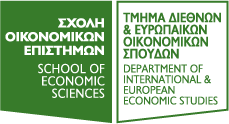Milionis, P., " The Gradual and Heterogeneous Effects of European Trade Integration"

Title: "The Gradual and Heterogeneous Effects of European Trade Integration"
Speaker: Associate Professor Petros Milionis, University of Groningen
Host: Assistant Professor Kospentaris Ioannis, Department of Economics, Athens University of Economics and Business
Time: 15.30 -17.00
Room: 76, Patission Str., Antoniadou Wing, 3rd floor, Room A36
Abstract: We use a theory-consistent empirical gravity framework to compare the effect of Eurozone membership on trade flows relative to that of participating in the European common market as well as other EU and non-EU bilateral and multilateral trade arrangements or institutions. We conduct this analysis based on different bilateral trade data sets which capture both gross and value-added trade at different levels of aggregation. The data allow us to compare these effects across pairs of countries, economic sectors and sub-national regions at the NUTS-2 level. Overall we find that participation in the European common market has a large positive effect on bilateral trade flows while participation in the European monetary union leads typically to weak and statistically insignificant effects. At the same time we document substantial heterogeneity in these effects across sectors and regions. Across sectors we find the effects of the common market and the common currency to be larger for trade in manufacturing goods. Across regions we find both effects to be larger for regions that are geographically close and regions that share a common language. Exploiting further the timeline of EU integration, we demonstrate that the two effects increase in magnitude the longer a given pair has been part of both the common market and the common currency. The findings suggest that European trade integration is gradual and it builds on pre-existing ties.





